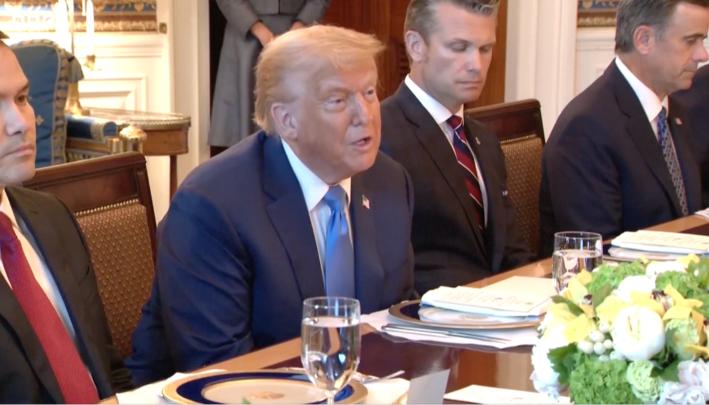US delays tariffs but warns 14 countries including Japan and South Korea

The move follows the end of a 90-day suspension period that the White House had placed on some of its toughest tariff proposals.
The United States has pushed back the date for imposing increased tariffs on imports, while simultaneously informing 14 countries , including Japan and South Korea, of new levy plans expected to take effect from 1 August.
The move follows the end of a 90-day suspension period that the White House had placed on some of its toughest tariff proposals.
Higher rates had been expected to start on 9 July, but President Donald Trump confirmed on Monday that the increase would be delayed, though not indefinitely.
"I would say firm, but not 100% firm. If they call up and they say we'd like to do something a different way, we're going to be open to that," he said when asked whether the August deadline was final.
The decision aligns with expectations that trade negotiations often require more time. Economist Adam Ahmad Samdin of Oxford Economics told the BBC that, “Such deals are usually extremely detailed,” noting that while Vietnam had reached a deal with the US, it was more of a broad agreement meant to speed up talks than a full trade treaty.
On the same day, Trump shared a series of letters on social media addressed to leaders of 14 countries, outlining the specific tariffs they face.
The letters noted that the new rates could still be adjusted “upward or downward, depending on our relationship with your country.”
According to details released, Trump plans to introduce a 40% tariff on goods from Myanmar and Laos, 36% on products from Thailand and Cambodia, 35% on imports from Serbia and Bangladesh, 32% from Indonesia, 30% from South Africa, and 25% on goods from Malaysia and Tunisia.
The proposed tariffs for Japan and South Korea remain at 25%.
Most of these rates echo figures that Trump floated in April when he made his "Liberation Day" announcement, warning of a broad wave of import taxes.
At the time, financial markets reacted strongly, prompting the White House to temporarily hold off on some of the highest duties while pursuing trade talks, though a 10% tax remained in place.
Investment strategist Vasu Menon of OCBC Bank said Trump's latest comments may be seen as part of his usual negotiating style. "The expectations that Trump is once again engaged in a negotiating tactic, rather than making serious tariff threats, offer hope to investors," he said.
Trump has continued to argue that higher tariffs protect American businesses from foreign competition and stimulate local manufacturing and job creation. However, economists warn that the added costs could drive up prices in the US and slow international trade.
On Monday, the three main US stock indexes slipped, with Toyota’s US-listed shares falling by 4%.
Japan, which sent over $148 billion worth of goods to the US last year, was America's fifth-largest source of imports after the European Union, Mexico, China, and Canada. South Korea was also among the top ten.
Japanese Prime Minister Shigeru Ishiba responded to the US move on Tuesday. “It is deeply regrettable that the US government has announced a further increase in tariffs, in addition to the rates already imposed,” he said. He also reaffirmed that Japan would continue discussions to achieve a deal that benefits both countries.
South Korea said it would use the extension to intensify its talks with Washington, while Thailand’s finance minister voiced confidence that his country would reach an agreement allowing it to secure a favourable rate.
White House press secretary Karoline Leavitt said additional letters might be released in the coming days. She dismissed the notion that pushing the deadline from 9 July to 1 August weakens the president’s position.
“The president's phone, I can tell you, rings off the hook from world leaders all the time who are begging him to come to a deal,” she said.
Treasury Secretary Scott Bessent said he expected a flurry of activity in the days ahead. “We've had a lot of people change their tune in terms of negotiations. So my mailbox was full last night with a lot of new offers, a lot of new proposals,” he told CNBC.
Trump has also imposed tariffs in key sectors like steel and cars, citing national security reasons, and threatened similar action on other goods such as pharmaceuticals and lumber. These overlapping policies have made negotiations more complex, with vehicle imports remaining a sticking point in talks with Japan and South Korea.
